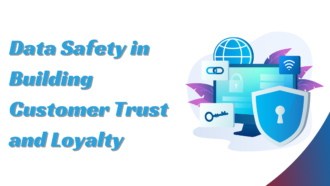How to become a digital nomad?
- 1 Steps to Become a Digital Nomad
- 1.1 1. Decide What You Want to Do
- 1.1.1 Evaluate Your Current Skills
- 1.1.2 Explore New Opportunities
- 1.1.3 Consider Freelancing and Entrepreneurship
- 1.2 2. Get the Skills You Need
- 1.2.1 Formal Education
- 1.2.2 Self-Learning
- 1.2.3 Practice and Real-World Application
- 1.3 3. Find a Remote Job
- 1.3.1 Job Platforms and Websites
- 1.3.2 Networking
- 1.3.3 Direct Applications
- 1.4 4. Organize Your Work
- 1.4.1 Set Up a Workspace
- 1.4.2 Time Management
- 1.4.3 Task Management
- 1.4.4 Communication
- 1.5 5. Find a Place to Live
- 1.5.1 Research Destinations
- 1.5.2 Accommodation Options
- 1.5.3 Consider Practicalities
- 1.6 Additional Tips for Digital Nomads
- 2 Conclusion
The modern world offers unprecedented opportunities to live and work anywhere, thanks to digital technologies, cloud services, and social networks. As connectivity improves and tools for remote work become more sophisticated, the dream of becoming a digital nomad—a person who works remotely while travelling—becomes increasingly attainable. Digital nomads enjoy the freedom to work from cafes, hotels, parks, or even beaches, maintaining their income while exploring the world. This guide provides a comprehensive roadmap for aspiring digital nomads, covering essential steps from choosing a profession to finding a place to live.
Steps to Become a Digital Nomad
1. Decide What You Want to Do
Before embarking on the journey to becoming a digital nomad, it’s crucial to determine what kind of work you can or want to do remotely. Here’s how to approach this step:
Evaluate Your Current Skills
- Existing Profession: If you already have a profession that can be performed remotely, such as software development, graphic design, writing, or digital marketing, you’re ahead of the curve. Assess how your current skills can be adapted to a remote setting.
- Skill Transferability: Consider how your existing skills might transfer to a different remote role. For example, a project manager might transition to remote project coordination or consulting.
Explore New Opportunities
- Identify Interests: If your current job isn’t suitable for remote work, explore other interests or hobbies that could lead to a viable remote career.
- Research Remote-Friendly Fields: Professions like software engineering, content creation, virtual assistance, online education, and e-commerce are well-suited for digital nomads. Investigate these fields to see which aligns with your interests and aptitudes.
Consider Freelancing and Entrepreneurship
- Freelancing: Many digital nomads work as freelancers, offering services such as writing, design, or consulting. This route provides flexibility and control over your workload.
- Starting a Business: Consider starting a small online business, such as an e-commerce store or a consultancy. This can provide a stable income stream and a high degree of autonomy.
2. Get the Skills You Need
Equipping yourself with the right skills is essential to succeed as a digital nomad. Here’s how to build your skillset:
Formal Education
- Degrees and Certificates: Consider pursuing degrees or certifications in fields like computer science, digital marketing, or graphic design, which are highly adaptable to remote work.
- Specialized Programs: Enroll in specialized programs or bootcamps that focus on remote-friendly skills like coding, UX/UI design, or data analysis.
Self-Learning
- Online Courses: Platforms like Coursera, Udemy, and LinkedIn Learning offer courses in virtually every field. Choose classes that provide practical skills and industry-recognized certifications.
- Books and Tutorials: Read books and watch tutorials relevant to your chosen field. Many professionals share valuable insights and tips through blogs, YouTube channels, and webinars.
Practice and Real-World Application
- Build a Portfolio: Start working on small projects or offer your services at a discount to build a portfolio. A strong portfolio is crucial for attracting clients or employers.
- Freelance Gigs: Take on freelance gigs through platforms like Upwork, Fiverr, or Freelancer to gain practical experience and build your reputation.
3. Find a Remote Job
Securing a remote job is a critical step in becoming a digital nomad. Here’s how to approach the job search:
Job Platforms and Websites
- General Job Boards: Use job boards like Indeed, Glassdoor, and Monster to find remote positions. Filter your search to show only remote or telecommuting opportunities.
- Remote-Specific Sites: Websites like We Work Remotely, Remote.co, and FlexJobs specialize in remote job listings across various fields.
- Freelance Marketplaces: If you prefer freelancing, platforms like Upwork, Fiverr, and Toptal connect freelancers with clients looking for remote talent.
Networking
- Professional Networks: Join professional networks related to your field, such as LinkedIn groups or industry-specific forums, to find job opportunities and connect with potential employers.
- Social Media: Use social media platforms like Twitter and Facebook to follow companies and individuals who post remote job openings.
Direct Applications
- Company Websites: Many companies list remote job openings on their websites. Identify companies that interest you and regularly check their careers page.
- Cold Outreach: Don’t hesitate to reach out directly to companies with a proposal if you see an opportunity to contribute. Tailor your approach to demonstrate how your skills align with their needs.
4. Organize Your Work
Effective work organization is vital for digital nomads. Here’s how to stay productive and manage your time:
Set Up a Workspace
- Home Office: Create a dedicated workspace at home with minimal distractions. Invest in a comfortable chair, a reliable computer, and high-speed internet.
- Mobile Workspaces: Equip yourself with portable tools, such as a laptop stand, noise-cancelling headphones, and a portable Wi-Fi device for working on the go.
Time Management
- Daily Planning: Plan your day using tools like Google Calendar or Todoist. Prioritize tasks and allocate specific time slots for work, breaks, and personal activities.
- Avoid Distractions: Use productivity apps like Focus@Will or Freedom to block distracting websites and apps during work hours.
Task Management
- Project Management Tools: Utilize tools like Trello, Asana, or Monday.com to manage projects, track tasks, and collaborate with team members.
- File Organization: Keep your files organized with cloud storage solutions like Google Drive, Dropbox, or OneDrive. Maintain a logical folder structure to easily access documents.
Communication
- Set Boundaries: Clearly communicate your working hours to colleagues and clients. Use tools like Slack or Microsoft Teams for professional communication and set do-not-disturb hours.
- Regular Updates: Provide regular updates to your team or clients on your progress to maintain transparency and trust.
5. Find a Place to Live
Choosing where to live is one of the most exciting aspects of being a digital nomad. Here’s how to find the right place:
Research Destinations
- Cost of Living: Consider the cost of living in potential destinations. Websites like Numbeo and Expatistan provide cost comparisons for various cities around the world.
- Internet Connectivity: Ensure your destination has reliable and fast internet. Check local internet providers and average speeds.
- Quality of Life: Research the quality of life, including safety, healthcare, transportation, and entertainment options. Expat communities and forums can provide valuable insights.
Accommodation Options
- Short-Term Rentals: Platforms like Airbnb, Vrbo, and Booking.com offer short-term rental options ideal for digital nomads. Look for places with good reviews and reliable internet.
- Coliving Spaces: Coliving spaces, such as Outside, Selina, and NomadX, offer a community environment for digital nomads with amenities like coworking spaces and social events.
- Long-Term Rentals: If you plan to stay in one place for an extended period, consider long-term rentals. Websites like Zillow, Trulia, or local real estate agencies can help you find suitable housing.
Consider Practicalities
- Visa Requirements: Research visa requirements for digital nomads. Some countries offer special visas for remote workers, such as Portugal’s Digital Nomad Visa or Estonia’s Digital Nomad Visa.
- Healthcare: Ensure you have access to quality healthcare. Consider getting international health insurance if you plan to travel frequently.
- Banking and Finances: Set up a reliable banking solution for managing finances abroad. Services like TransferWise and Revolut offer convenient options for international banking.
Additional Tips for Digital Nomads
- Stay Connected with Loved Ones: Use video calls, messaging apps, and social media to keep in touch with family and friends. Schedule regular calls to stay connected.
- Maintain a Routine: Establish a daily routine to balance work, travel, and personal time. Consistency helps in maintaining productivity and mental well-being.
- Join Digital Nomad Communities: Connect with other digital nomads through online forums, social media groups, and local meetups. Sharing experiences and tips can be beneficial.
- Stay Healthy: Prioritize your health by maintaining a balanced diet, exercising regularly, and taking breaks to avoid burnout.
- Be Adaptable: Embrace the uncertainties of the digital nomad lifestyle. Flexibility and adaptability are key to thriving in different environments.
Conclusion
Becoming a digital nomad is an exciting and rewarding journey that offers unparalleled freedom and opportunities to explore the world while maintaining a career. By following the steps outlined in this guide—choosing a suitable profession, acquiring necessary skills, securing remote work, organizing your workflow, and finding a place to live—you can embark on a successful digital nomad lifestyle. Embrace the adventure, stay disciplined, and enjoy the unique experiences that come with working and living anywhere.

















